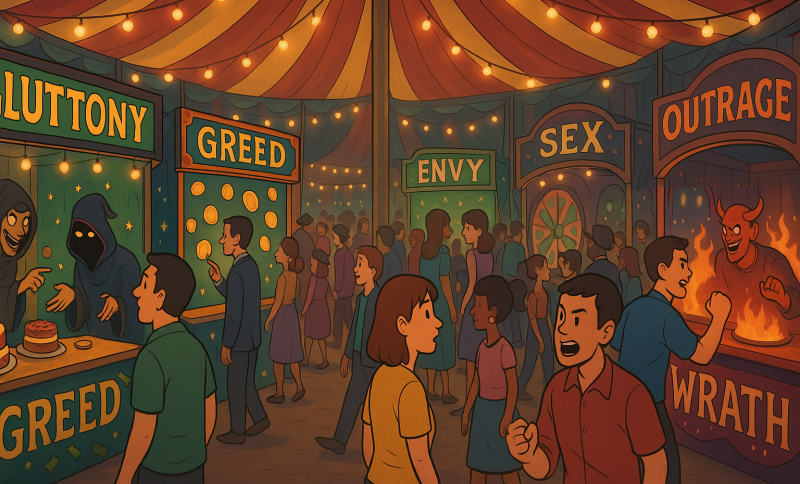Dreams are Life Experiences

Imagine that a drug had been created that can erase specific memories. Memories of childhood abuse may thereby be effectively erased.
I think everyone has the intuition that this would fix little. Survivors of childhood abuse would continue having difficulty establishing trust and forming intimate relationships. They just wouldn’t know why.
Dreams operate in the same way. Events take place that you think are real while you are experiencing them. You fear. You have glee. You react. You are changed by the experience. You might well dream again of the same theme. Months later, you become aware of habits and prejudices have formed. The difference that you have forgotten or discounted your dreams, so you come up with plausible explanations.
Feed-Back Loops
Dreams are life experiences. They are to be approached with the same seriousness as waking life experiences. Maybe more, because your dream environment is much more reactive to your predilections than waking life. Virtuous circles are possible: if you dream of something good, and get groovy with it, then the next dream is better. The limit is how good it can be before you reject it as unrealistic. If you come to realise that realism is not the point, you are propelled into a heavenly dreamscape.
Vicious circles are also possible: You suspect that you are being tricked. You suspect there are hidden dangers and threats. In subsequent dreams, the threats and dangers are manifest. Then you must deal with them. Whether you are successful or not is not as important as the fact that you are dreaming about them in the first place. If you have been given the choice between a heaven and a hell, you’ve chosen a hell. There is no way to win at hell. All one may do is practice it. Ultimately, you get comfortable with what you are good at, and you get good at what you practice. This arguably has an effect on your waking life.
A Magical Circus Tent
Imagine a magical circus tent which has magical stalls at which every vice and every virtue is catered to. This is the dreaming world. Whatever attracts your attention provides you with an activity that deepens your familiarity with it. The excitement and familiarity are a powerful combination; they act like an addiction. Worse, they increase your readiness to engage in vaguely similar situations in waking life.
This is why dreams are to be taken seriously as life experiences. They matter. They have consequences. The magical circus tent is arguably the most important test of your life.
What you can do
Start by keeping a dream diary. This gives the dreams some weight in your waking experience. It makes it easier to remember them thereafter. Most importantly, it improves your recall of subsequent dreams.
Look at your dreams and identify patterns that also occur in waking life. Label your patterns. If you are quick to find fault in others, practice saying, “I am finding fault with this person.” Just label it. It increases your lucidity. One day, you’ll say it, and find that you’ve lost interest in carrying through. Without effort. Without therapy. Lucidity plus time exhaust.
When your dreams become bright, and perhaps even before then, some dream characters shall give you advice. Take it.
